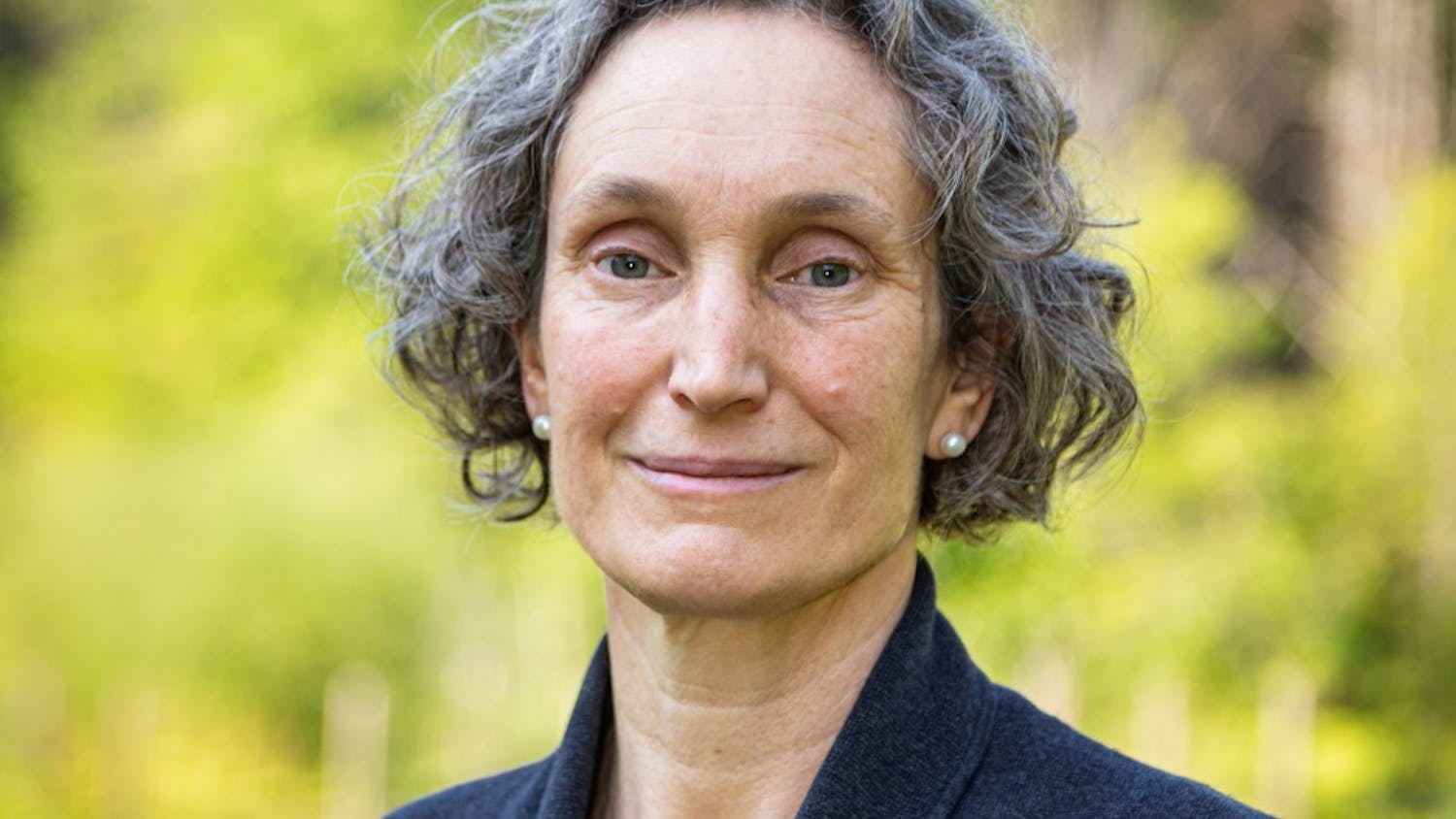Government professor John Carey is associate dean of faculty, and his research has spanned topics like American democracy, campus diversity and conspiracy theories. This week, The Dartmouth sat down with Carey to learn more about his work on conspiracy theories, which includes how they affect perceptions of the Zika virus in Brazil, politics in Venezuela and even the 2014 Deflategate scandal right here in the United States.
I noticed that conspiracy theories are a part of your research, but they’re a fairly small part compared to a much more extensive list of publications. So I’m curious: Why conspiracy theories, among everything else that you do?
JC: I spent most of my career studying elections, and really, the rules of elections, the design of electoral systems. Most of my work has been in Latin America, not in the United States, and mostly not studying political opinion and public beliefs. But partly through hanging out with Professor Nyhan, and partly by spending my time watching elections and studying them, the problem of conspiracy theories has just grown. Conspiracy theories are becoming more central to elections and electoral competitions. So as that’s happened, my interests have flowed into that area.
Being mainly focused on Latin American politics, I realized that there was almost no scholarship being done on misconceptions and conspiracy beliefs in that part of the world. People in other parts of the world, including the Middle East and Europe, have paid quite a bit of attention to this. In Latin America, almost nobody was studying it. But there are plenty of conspiracy theories floating around in Latin America, and they matter politically. So, I saw an opportunity. I was hoping to make something of a contribution there.
I’m glad you brought that up, because I saw that you’ve done research in Brazil and Venezuela. There were some crazy numbers: According to one of your published papers, 54 percent of people believe in one of the three major conspiracy theories you examined. Focusing on South America is an interesting choice because, from what I’ve heard, it’s definitely less represented.
JC: The Venezuelan case is interesting because there are a bunch of things that became conventional wisdom about conspiracy theories, based on the studies that we had in Europe and the United States. One of them was that conspiracy theories are for people who are outside of government and disempowered.
But really, what is a conspiracy theory? It’s a belief that there are some invisible forces that we can’t necessarily identify or observe, but they’re controlling things and doing bad stuff to us. In politics, they’re pursuing policy that’s against the interests of the broad set of people. It’s natural to think that those kinds of theories will appeal more to people who are outside of government power. They’re the ones who feel that things are being done to them.
But in Venezuela, it’s interesting because while there is conspiracy theory belief on both sides, it’s much more prevalent among supporters of the government. It’s actually advocated by the government. That was one way in which, at least in Venezuela, conspiracy theories seemed to be following different rules. There were also arguments that conspiracy theories are going to appeal more to conservatives than progressives — and again, that doesn’t seem to line up with what we see in Venezuela.
Are there any other countries or regions that, like South America, are seriously lacking in that kind of conspiracy theory scholarship?
JC: To study conspiracy theory beliefs requires you to measure public opinion. You want to know how widespread they are in the broad population. We’re moving forward in public opinion research all over the world now. There are new technologies that have allowed for that to happen, the internet being one, people’s access to cell phones and so forth. If you went back 20 years, when almost all public opinion polling was done by calling people up on landlines, there were big parts of the world where most houses didn’t have a landline. We knew very little about public opinion in those places.
In the most recent 20 years, landlines have become basically useless for doing public opinion polling because nobody answers them anymore. They’ve been replaced by other technologies that have kind of flattened the geography of public opinion polling. So now, public opinion polling faces all kinds of challenges, but they’re kind of similar in almost all parts of the world. It’s still hard to get a representative sample because everybody’s overpolled. Everybody can be exposed to polls in a million different ways, so they get exhausted from them, so then the challenge is: Can you know with confidence that the group of people that you get responding to something is representative of the broader population? But the good news is, that problem is much more similar from country to country than it used to be 20 years ago.
When I was looking at your previous publications, I saw a lot of politics, but then I saw a paper about Deflategate. That stood out to me because it was notably “less political,” or at least not blatantly political. Could you comment on those “less political” theories?
JC: One of the problems when we study conspiracy theories in politics is that you might have a bunch of conspiracy theories — and maybe you get a good representative survey, you pay for it, you ask a bunch of Democrats and Republicans and Independents if they believe in these things. It might well be that Republicans have a higher belief, or maybe Democrats have a higher belief. Whatever you find, you don’t really know if certain kinds of people are funneling into one party or the other, and it’s not so much about the theories as it is people who have selected into those sets. That’s a perpetual problem that we’re always looking for ways to solve.
People don’t tend to select into being a Patriots fan or a Jets fan. Some people do, but for 95 percent of those folks, it’s just where you’re born. It’s much more randomly assigned than political partisanship is, so we were able to use belief in Deflategate. People are either going to know every detail of this conspiracy theory, or they’re going to never have heard of it. We were interested in trying to figure out to what extent people’s arbitrary Patriots fandom or non-Patriots fandom affected the way they processed additional information about these theories. So, using sports was really just a randomization mechanism for us.
What we showed is what you’d probably expect: that Patriots fans were highly motivated to digest certain types of information about Deflategate, and people who were on the other side of the fence were highly motivated and highly receptive to other types of information. It wasn’t groundbreaking research, but it was a way to get at a familiar question from a different route.
Is there anything you think more students or the community should know about this topic?
JC: One of the general beliefs about conspiracy theories is that people are misinformed because they don’t have enough information, and if we get them more information, they’ll correct their misperceptions. The more we study conspiracy theories, we realize that a lot of times, it’s not that misperceptions are more prevalent among people who lack information. Sometimes it’s quite the opposite, sometimes misperceptions are strongest among the most heavily informed.
Part of that is that people select their information. They gather and retain information selectively, based maybe on what’s more congenial to their predispositions. One of the things that means is that it’s not just increasing the volume of information that’s out there. If you want to try to correct misperceptions, it’s really important to think about sources of information and where it’s validated from.
One of the studies that you didn’t ask about was a study that we did in Brazil on the Zika epidemic. There were a lot of misconceptions about how you could contract Zika and its connection to microcephaly. So, the Brazilian government, the World Health Organization and the Pan-American Health Organization all wanted to basically correct a bunch of these misperceptions because they figured getting the right information out there to Brazilian citizens was going to make them better able to protect themselves against this epidemic. Sometimes they were basically trying to take the misperceptions head on, saying “You might think Zika is caused by genetically-modified mosquitos, but it’s not.” Or, “You might think that microcephaly is coming from vaccines, but it’s not.” They were basically trying to rebut the misperceptions. The discouraging thing about our research is, we found that the rebuttal strategy actually was undermining people’s baseline public health knowledge about all kinds of other things.
One of the things that we were not able to do in that research, but that I’d like to do next, would be to try to figure out, does it matter if the source of the information varies? We were testing the effectiveness of these messages that were coming from the government’s public health ministry. Would those messages have been more effective if they had come from a local NGO or some other, more trusted source of information closer to the recipient? I know that’s a long way to come back to your question, but one of the things I think we really need to be focusing on right now is not necessarily the volume of information that’s out there, but the sources of it. People tend to be very skeptical about information that’s coming from other sources. We need to think about how we break through those bubbles and communicate even to audiences outside of our own immediate set of connections.
This article has been edited and condensed for clarity and length.



